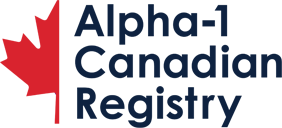Clinical Trials
Clinical trials are research studies performed on human subjects. Studies conducted on animals, in test tubes, or using various other laboratory techniques are often called basic research. Clinical trials may include studies to evaluate the course of a disease, its cause or a treatment. Testing of new drugs or therapies is often the most visible and exciting type of clinical trial. In Canada, clinical trials that evaluate a new drug or pharmaceutical therapy fall under very strict regulation by Health Canada. Health Canada decides whether the studies performed show that a drug is effective enough and safe enough to warrant broad distribution of the drug to patients. You can register with the Alpha-1 Canadian Registry to find out about clinical trials and research projects you may be eligible to participate in. Participating in research is a tangible way for you to take part in the quest to improve the lives of all Alphas – including yourself – and be a part of eventually finding a cure for this devastating disease. Dr. Kenneth R. Chapman, M.D., M.Sc., FRCPC, FACP, FCCP
To learn more about clinical trials currently recruiting alpha-1 patients click here
Research Registries
Research registries are lists of patients who have agreed to consider requests to take part in research on Alpha-1. Joining a registry does not mean that you agree to take part in research, only that you agree to receive requests from researchers who are studying Alpha-1.

Alpha-1 Canadian Registry
The Alpha-1 Canadian Registry was established in 1999 to gather information on Alpha-1 in order to study the natural history of the disorder and to conduct studies and clinical trials. All information in the registry is strictly confidential. The registry is open to both patients and carriers. Consent to become part of the registry does not mean consent for clinical studies. Individuals are free to withdraw their names from the registry at any time, should they so choose.
Contact the registry at:
www.alpha1canadianregistry.com
alpha1canadianregistry@gmail.com
Alpha-1 Canadian Registry
Toronto Hospital, Western Division,
Edith Cavell Wing, # 4-011,
399 Bathurst Street, Toronto, Ontario, MT5 2S8
The toll free number is: 1-800-352-8186

Alpha-1 Foundation Research Registry (USA)
The Alpha-1 Foundation Research Registry is located at the Medical University of South Carolina (MUSC) and is open to Canadians who wish to register. Its purpose is to facilitate research into alpha-1 and, like the Canadian registry, all information on participants is completely secure and confidential. It is also open to both patients and carriers.
For more information,
visit the website at www.alphaoneregistry.org
Phone 1-877-886-2383.

